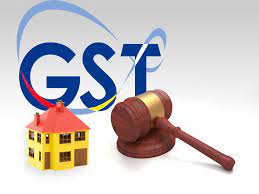
 GST Implications for Real Estate
GST Implications for Real Estate
GST implications for real estate, In India, the real estate sector’s GST compliance entails distinct regulations and obligations.
Here are some key aspects of GST implications for real estate for real estate:
GST Registration:
Real estate developers and builders are require to obtain GST registration if their annual turnover exceeds the prescribe threshold limit (currently INR 40 lakhs for most states, except for a few special category states where the limit is INR 20 lakhs).
Taxable Supplies:
Real estate transactions such as sale of under-construction properties, renting or leasing of commercial properties, and provision of construction services are subject to GST. The applicable GST rates and rules vary depending on the type of property and nature of the transaction.
Input Tax Credit (ITC):
Real estate developers can claim input tax credit on various expenses incur for construction, such as purchase of raw materials, services from contractors, and other eligible input costs. However, ITC is not available for certain expenses like purchase of land, immovable property, and works contracts for immovable property.
Reverse Charge Mechanism:
In certain cases, the recipient of real estate services, such as a homebuyer, may be liable to pay GST under the reverse charge mechanism. This means the recipient is responsible for paying the applicable GST directly to the government.
Compliance with Anti-Profiteering Provisions:
Real estate developers are require to comply with the anti-profiteering provisions under GST, which aim to ensure that the benefit of input tax credit is pass on to the buyers by reducing the prices of properties.
Proper Documentation and Invoicing:
Real estate developers must maintain proper documentation and invoices related to their transactions. They are require to issue GST implications for real estate tax invoices, maintain books of accounts, and submit periodic GST returns.
It is important for real estate developers and businesses in the sector to understand and comply with the specific GST rules and requirements applicable to them. It is recommend to consult with a qualify tax professional or seek guidance from the official GST authorities.
For accurate and up-to-date information on GST compliance for real estate.
FAQs:
1. Is GST applicable to the sale of real estate?
How do I calculate the interest on GST liability?
To visit https://www.gst.gov.in/

For further details access our website https://vibrantfinserv.com